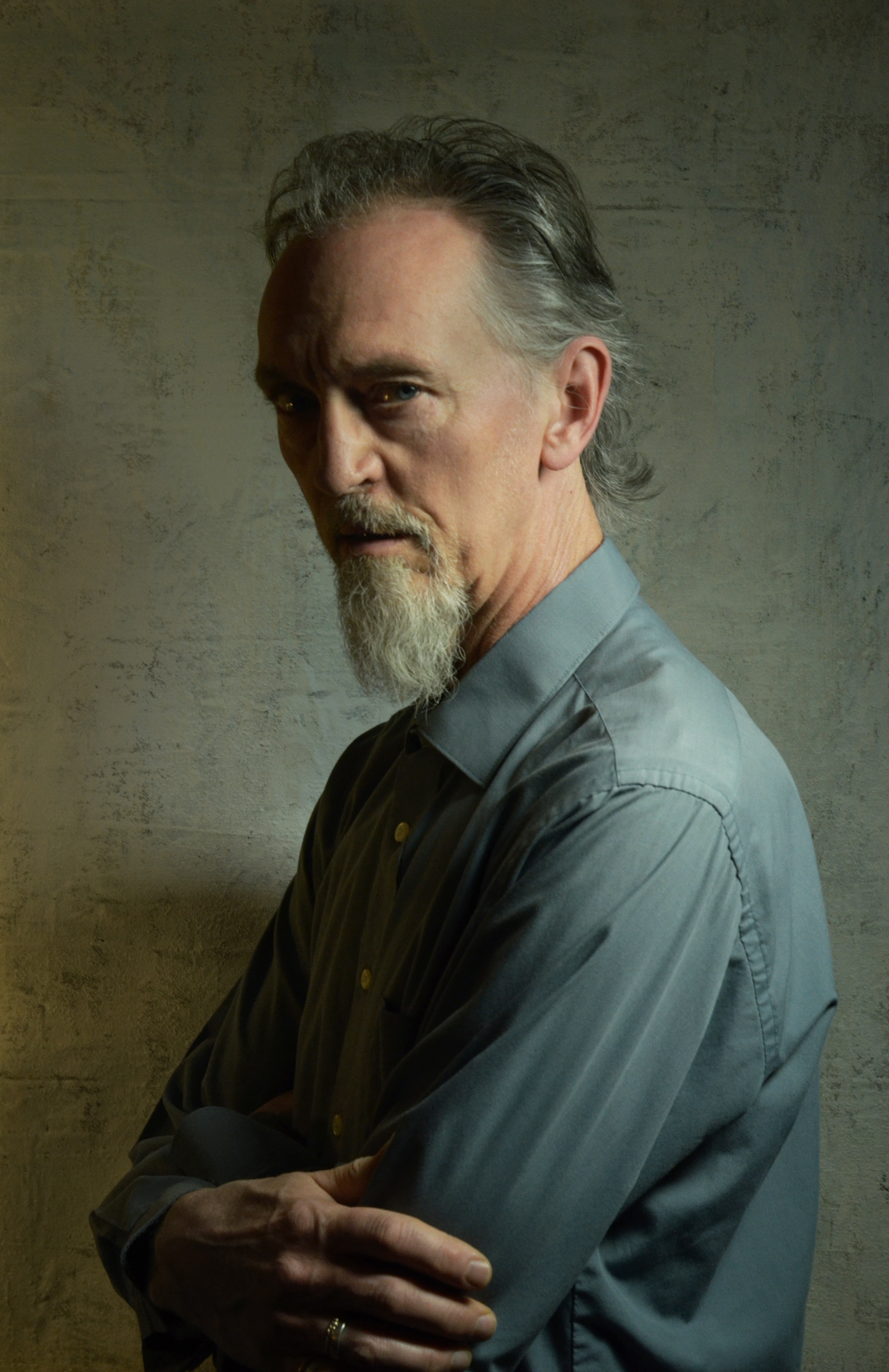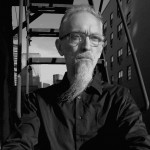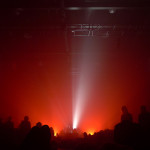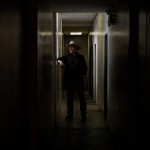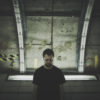Portraits by Daniel Murtagh
Considering how crushing the most recent incarnation of Swans was on record and the road, it’s as if the latest solo LP of guitarist Norman Westberg (After Vacation, due out this Friday through Lawrence English’s Room40 label) was created as the calm after the storm. Or as he puts it, “I like my music to fall into the more meditative world. Let the listener be able to tune out, or engage in the listening experience.”
There’s much more to it than that, of course, from English’s priceless contributions as a co-producer to everyday life itself. In the following exclusive, we touch upon it all with one of post-punk’s longtime secret weapons, and unveil an early listen to the entire record….
Let’s start with the title of your new record. Is the vacation you’re referring to the past eight years you played with Swans? And if so, does that make your solo career and other current projects the ‘day job’ you’re now returning to?
After Vacation was originally a working title for a song I started just after returning from a family vacation. With Swans coming to an end in its current lineup, the title became a bit more meaningful. I enjoy naming the tracks, trying to come up with something that will make someone think, probably loading it with more meaning than intended.
Does the positive reception you’ve received so far and the interest of a like-minded label like Room40 make you want to pursue a solo career full-time or do you prefer playing in a band at the end of the day?
I love playing in bands—with ‘the gang’—as well as being in the support position rather than the boss. Nothing thrills me more than the support that I have been getting for my solo ventures. It’s very satisfying to see people interested in what I have to say musically. I will always make time to work on my solo trip. No ‘band’ thing on the immediate horizon, so onward with my lone ways.
You didn’t start releasing solo records until 2012. Do you have a ton of unreleased material from previous decades or were you too busy with Swans and other side projects to produce much in the past?
I performed a solo guitar piece in the ’90s at The Cooler. I was less than happy with the outcome. It took that long for me to figure out what I could do with a solo approach that made me excited and happy. It started with plugging all of my effects boxes into all of my tiny amps. I just let the guitar do what it wanted, and manipulated the boxes. Christmas was approaching so I decided to make a recording for my father-in-law. That first one ended up being [the CD-R] Plough. My wife Jennifer heard me working it out and said that I should present my music as limited edition custom made CDs. She is a jeweler, and sells on Etsy, so that was the logical place to set up shop.
Have you and your father-in-law bonded over music a lot?
My father-in-law was a saxophone player in the Navy’s band, then went on to teach music and lead bands for high school students in Central Long Island. He enjoyed all types of music and was fascinated with my history of playing in bands. He would give anything a listen. He especially liked West Coast jazz—pretty far removed from what I get up to.
How would you describe your style of guitar playing and how it’s evolved over the years?
I always hope that the ‘Detroit’ comes out in my playing. I’ve never been one to sit and figure out other people’s songs; I’m more interested in doing something new. I love sustain, subtlety, and hidden melody with rhythm. Some of my favorite guitar playing was in The Heroine Sheiks. The last eight years with Swans helped me by making me really play every day. Not just ‘room’ practice, but playing when it counts.
How did growing up in Detroit help shape your tastes and desire to become a musician, and how did it compare to NYC?
My friend’s brother had a band that practiced in their basement. I was down there and very impressed with how cool it all seemed. I loved the shape of the SG guitar, and the case and everything. My sisters had cool hippie friends that turned me onto music. Kind of a ‘hey let’s see if the kid likes Zappa’ thing. I suppose that the easy availability of live bands helped me to progress with my own thing. I think that NY was a ‘turbo’ version in that people came from all over to meet up and play.
My initial interest was drums, not the guitar, though. I felt that the drummers of the time were the coolest, but something about the guitar overshadowed that. It is a tough road; nothing about guitar playing comes easy for me. I love that I can continue to learn and feel better about my playing to this day.
There are times while playing that I am transported; everything stops and there is a total connection with the music. It doesn’t always happen, but that is the mind that I am going for. The best times are where I get separated from being the player, and become more of an observer, totally enjoying where the sounds are going. At the same time, it can be very frustrating. Sounds are not hitting the spot, or seem dull. I will push through that to find where I am supposed to be.
What’s one record and/or artist you’ve turned to over the years when you needed to lower your blood pressure, alleviate some anxiety, or settle your nerves?
I would say that there are more than one, depending on what gets into my head. Lloyd Price will calm me down; what a voice! Nico’s Chelsea Girls record is also a good one for listening and drifting.
One thing I really love about your solo material is how none of it sounds like a simple guitar. To use the new album as an example, the title track is the one time it feels like we’re listening to the clear strumming of strings. Is that intentional; are you trying to blur / erase the lines of what a ‘solo guitar record’ can, and should, sound like? On some level, it kind of reminds me of Stars of the Lid, in how nothing and everything seems to be happening all at once.
Stars of the Lid is one of the groups that I stumbled upon that made me feel ‘not alone’. I like the slow shifts and deceptively simple tone of the stuff. I suppose that I am trying to give the impression of rhythm with the string attack. I am letting it sound like more of a traditional guitar when I choose to.
I’m really not trying to do anything but entertain myself with the guitar. I’m happy that others are interested in what I do with it. I want to sound confident in my playing, with a clear purpose and control over the outcome.
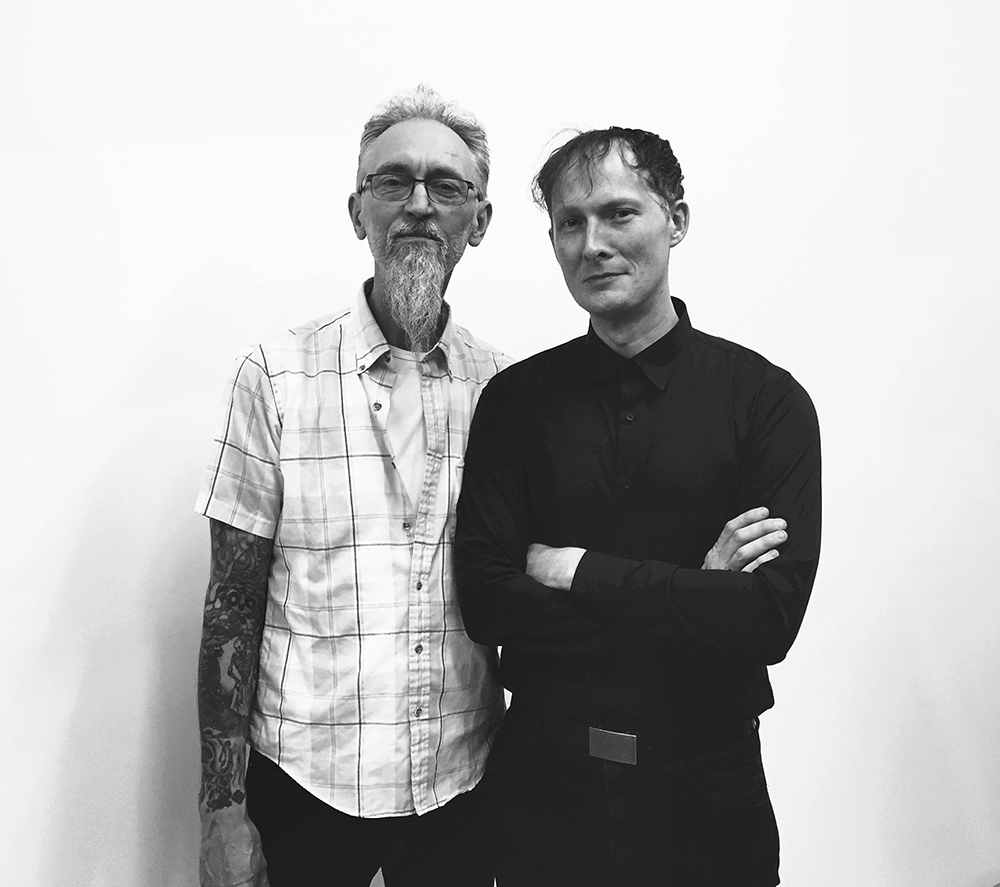
The After Vacation sessions were a little different from your other solo work in how they were collaborative rather than a series of loose, improvisational recordings. What was it like working with Lawrence English, and did the process of making this album make you want to do more records like it?
On my previous releases, I would record what I played with the idea that I was having a shifting conversation with the world. I would not overdub; any editing would be minimal. Lawrence told me once that it might be interesting to explore shorter pieces, with more of a song idea, rather than a musical short story vibe. I am all in. I feel that this approach is still in its early stages, and will only get better. Lawrence plays a huge role in the outcome of this record. He took my layers and melded them into breathing stand-alone pieces.
Did you have a loose storyline in mind to help guide the general mood and structure of the songs?
Every track began with a mood in my mind. Lawrence is great at hearing what I what I am going for, and bringing out the story of the track.
What were some of your non-musical influences heading into this record—things like films, books, etc.?
My daughter is a constant source of inspiration for me. I tend to read and watch thrillers, so making my music is maybe calming because of that.
What are a few recent thrillers that have floored you in some way?
I really liked the miniseries The Terror, a turn-of-century, sea/ice tale of desperation and psychosis. It is nice that a show has an ending. Resolution in some of the modern shows is pretty loose. The first season of True Detective had some real edge of the seat moments. Again, that show had a solid conclusion.
It must be awesome to share your love of music with your daughter. What are some records and artists you’ve bonded over?
She definitely got me to pay attention to The Verve. We bond over Adam and the Ants and some Katy Perry tunes.
Has your daughter gravitated towards making music yet, too?
My daughter and I have a music/art project called Magic Crystal Dirt. She is the vocalist and in charge of titles and imaging. We have one track on Bandcamp with more on the way.
Nothing seems that surprising to me. My sideline of drum repair may not be a musical influence, but a lot of music is discussed while on the job. I feel that the daily walk of life has a tremendous influence on my music.
How did you end up working in drum repair? Is that a steady day-to-day gig when you’re not touring? What’s one record you discovered while on the job?
My very good friend, John Fell, does the drum thing at Main Drag Music in Brooklyn. I had done some home repairs with him; he is a great teacher. He was also the drummer in Heroine Sheiks. At some point, I approached him about learning about repairing drums. I get better at it as time goes on. We don’t really discover new music as much as go over the music we both grew up with.
What’s the story behind the song title “Norman Seen as an Infant”? Have you been thinking about your past a lot lately and your own mortality?
The past and future—as well as the present—is always lurking…. My friend and drum boss just had a son. To my shock and delight, he was named after me. The title is a kind of tribute to the small Norman.
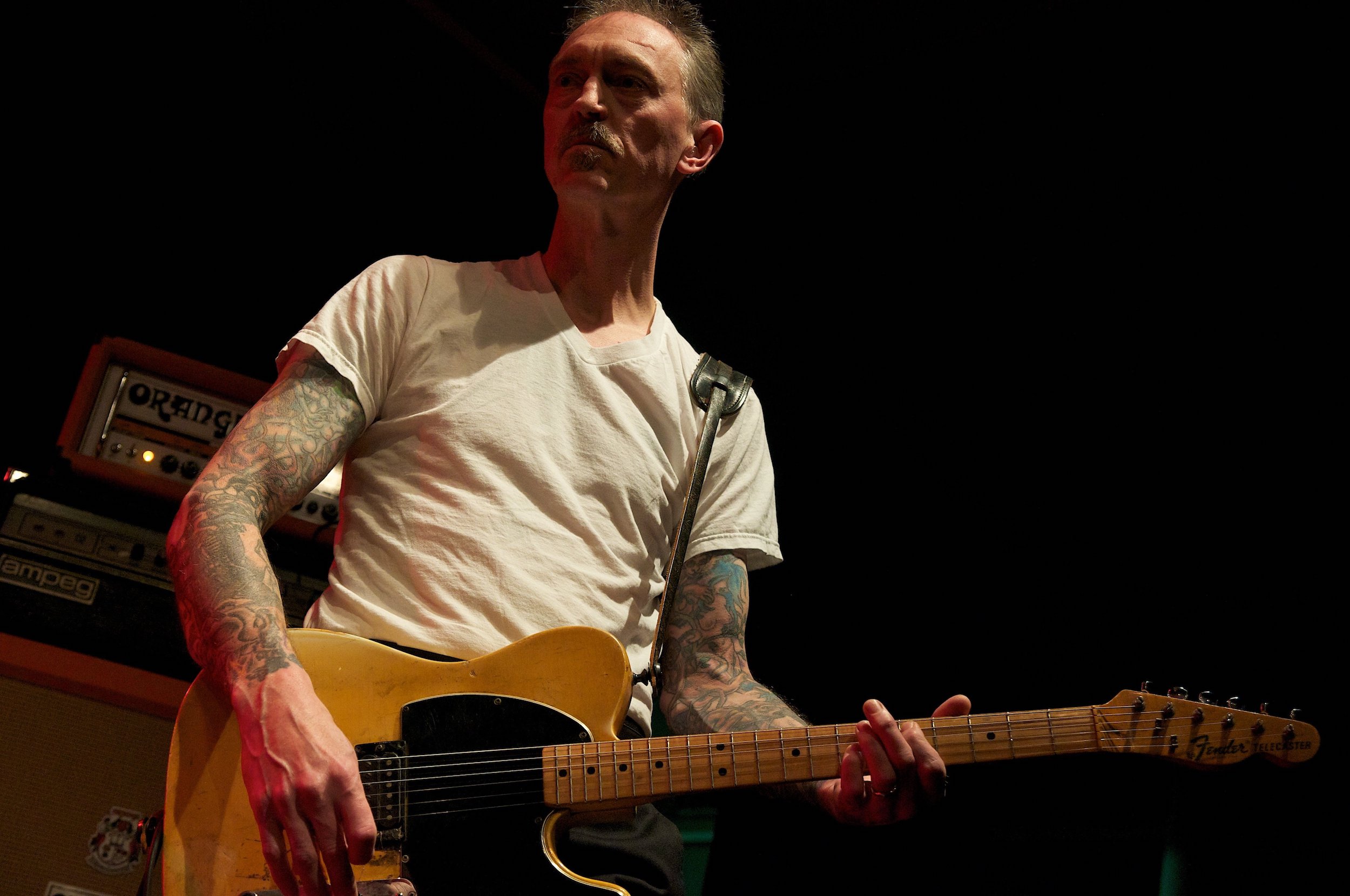
Before you go, we’ve gotta ask a few Swans questions, since the past eight years have far surpassed the expectations of, well, everyone. What was your immediate reaction to Michael’s decision to reform Swans, and how did you feel about this particular run of records?
I agree with Michael when he says that this was not a reformation of Swans, but a continuation after a pause. Some of the older songs that we tried in the initial practices fell pretty flat. I am happy that it did not turn into an oldies review of our past lives. I have learned a lot from working with Michael. He is a very focused individual.
Michael’s been giving a lot of old Swans records long overdue reissues lately. Have you listened to them at all to put the trajectory of the band in perspective or do you try not to revisit your past too much?
I listened to the Filth reissue; it sounds much better to my ears. I tend to listen to individual tracks—”Thank You,” “Blackout”—rather than the LP as a whole. The older stuff still stands up as some weird, cool music.
What’s one record you’ve made that you’re particularly proud of and was largely overlooked at the time?
I feel that The Heroine Sheiks are an overlooked band. I am especially proud of the Siamese Pipe recordings. I got to play my oddball guitar stuff along with an amazingly musical and unique gang of players. We managed to tour the US several times and release two full-length recordings and singles while I was involved.
What are a couple Heroine Sheiks songs you’d recommend to people who haven’t heard the band before and why?
“My Boss” is a favorite song of mine. I get to show off a couple guitar moves. The energy of that track is dizzying.
People often romanticize ‘the way New York used to be’. Seeing as how you actually lived it, what do you miss the most about NYC in the ’80s and ‘90s, and what makes you think ‘good riddance’?
NYC in the ’80s and ’90s was definitely a bit more dangerous. That I do not miss. Part of it is just getting older; I had my NY. Now there is a new batch of younger’s to keep it going.
What’s one particularly exciting NYC artist you’ve heard or seen over the past few years?
Stu Spasm has a great new band, The Art Gray Noizz Quintet. Stu has always impressed me with his guitar style. Bob Bert is always doing great things. His latest, Wolfmanhattan Project, is fantastic.
What’s your favorite Swans album from a listener’s standpoint?
Impossible; I could never just be a listener. The experience of recording at Sonic Ranch in Texas for the last two records make those records fresh for me. Working with such talented and cool humans left a lasting impression on me. The best experience was sitting on the control room couch, listening to rough mixes from the tracking that we had just done.
What were some of the biggest similarities and differences between the most recent version of Swans and the band’s early days?
The biggest similarities between the early and new is the professionalism of the cast of characters. Everyone takes their roles very seriously, and brings in their special talents. The biggest difference would probably be the longevity of the recent group. This was a long stretch with the same people. Very nice to have that kind of stability.
The shows from this particular era of Swans were particularly impressive—transcendent, even. They must have been mentally and physically exhausting for you, though. Did you ever look up at Michael and think, ‘Man, are you trying to kill us?’ Or was it the opposite for you—a bunch of like-minded individuals working towards the common goal of whatever ‘Swans’ is in the 21st century?
I think that you summed it up pretty well with “a bunch of like-minded individuals working towards the common goal of whatever ‘Swans’ is in the 21st century.” The work out part also has something to do with humping our own gear, and that is a lot of gear.
What was one of your most memorable shows from this era and why?
The three shows that my daughter attended hold a special meaning for me. They where during the last tour—London, Manchester, and the final show in Brooklyn. At the Brooklyn show she was next to me backstage. I handed her my guitar and her face really lit up.
I love my girls, Jeni and Mina.
What did you take away from Swans and apply to your solo work?
I apply the Swans ethos of ‘slow down’ to my solo work. I try to let the music breathe a bit before moving on. Also, to be in control, until it is time to not be in control.
Do you expect to be involved with whatever the next version of Swans is since you’ve been the most consistent member of the band, or would you rather end on a high note with them?
I think that Kristof Hahn went through a lot with the band, more specifically Michael. I try to not expect/assume anything at this point. I enjoy working with Michael, and appreciate his vision, so…
Finally, are you planning to tour more this year? Or simply get back in the studio ASAP?
As the studio is where I live, it is always an ‘on’ switch away. I am developing some new ideas currently. I am playing shows in NY, and would love to go out and ‘slog’ it out on the road. I did a west coast tour earlier in the year with Thor & Friends, and have some dates with Michael in the fall. I will be always playing.
